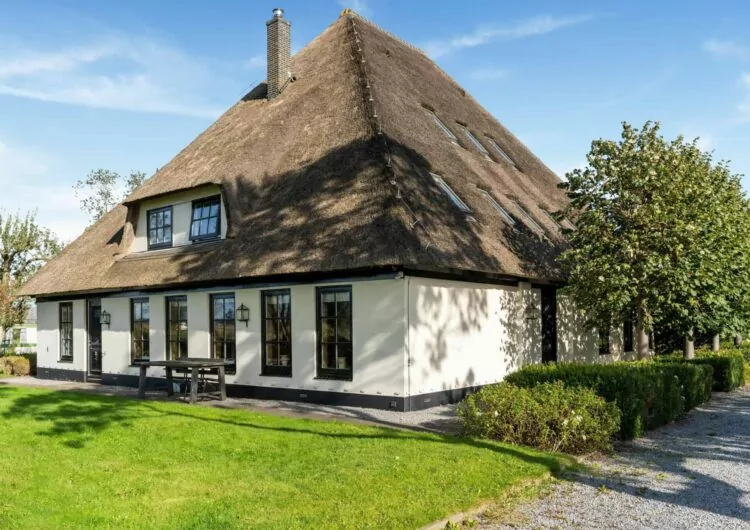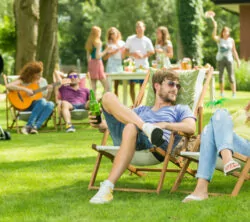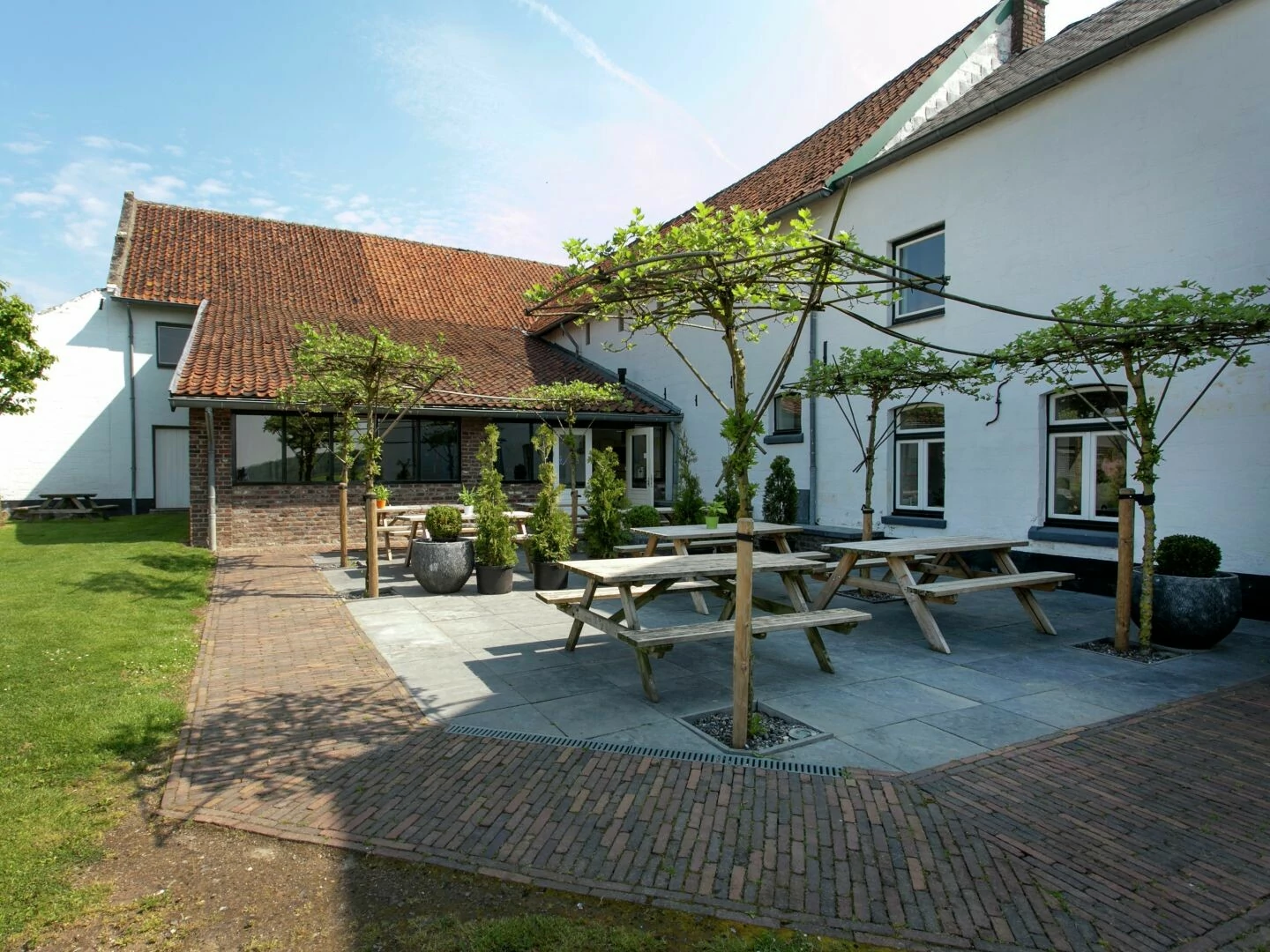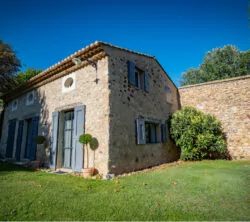“Two weeks ago it was forty degrees warmer in Antarctica, forty degrees warmer! This is not going well and is heavily underestimated”.
Meet Arie, host since 2022. Together with his wife Mariëlle, he bought the farmhouse dating from 1876, in North Holland. The house used to be the residence of the dike master who was involved in the impoldering of the Boekelermeer and it was built on a wooden structure, a great building material, much better than steel. Arie has taken the step of making the farm sustainable. In the earlier days the house used to be heated by the cattle in the middle of the farm, after that it was done with coal, then oil and then gas. Today, everything in the house is electric. The 15,000 kWh of electricity required for this is obtained via solar panels. The thatched roof already provided a lot of insulation adding to that was another meter of insulation with PIR plates, the windows are all in HR++ insulation glass, the heating is wood-fired and the lighting consists of LED lamps.
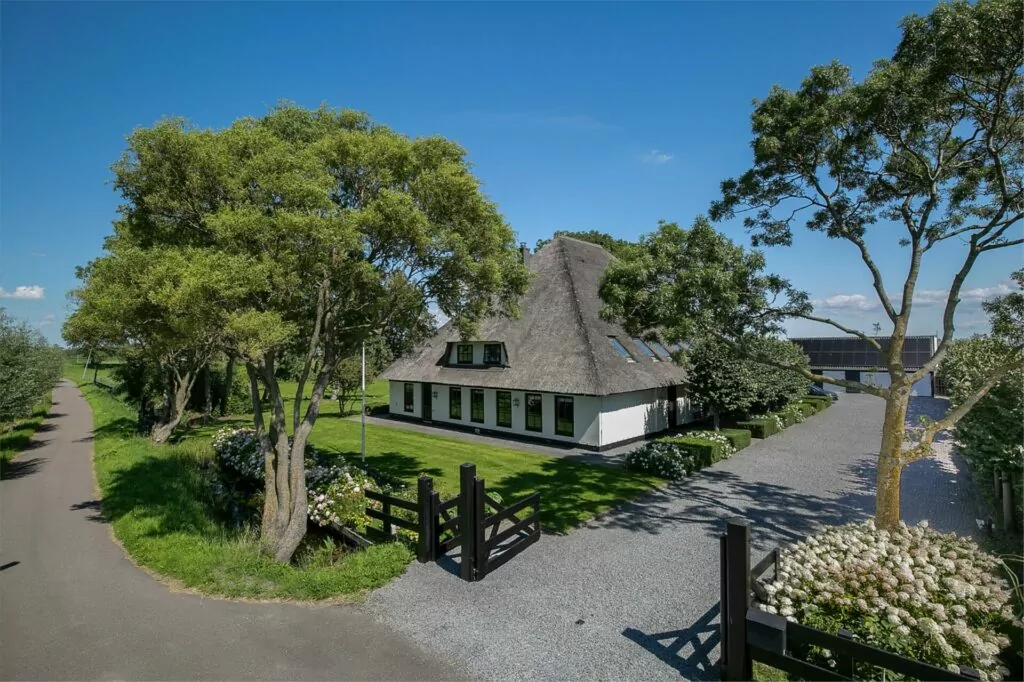
Arie is a teacher of biology, chemistry and integrated sciences at the European School in Bergen, where children of 51 different nationalities go to. He has two teenage daughters himself. “Children today can see very well what is going on with global warming and are often disappointed by the current generation who do nothing or little about it. This sometimes makes them disillusioned,” says Arie.
The family uses the farm to live in during the winter months and rents it out via Belvilla during the summer. Because there is room for 20 people, it is popular with larger families and groups of friends. The huge garden offers plenty of space to enjoy the outdoors. Despite being an ‘old’ farmhouse, the interior has a very spacious and modern design in which a number of authentic details have been preserved. Because of the spacious layout, it is even possible to dance together, if desired.
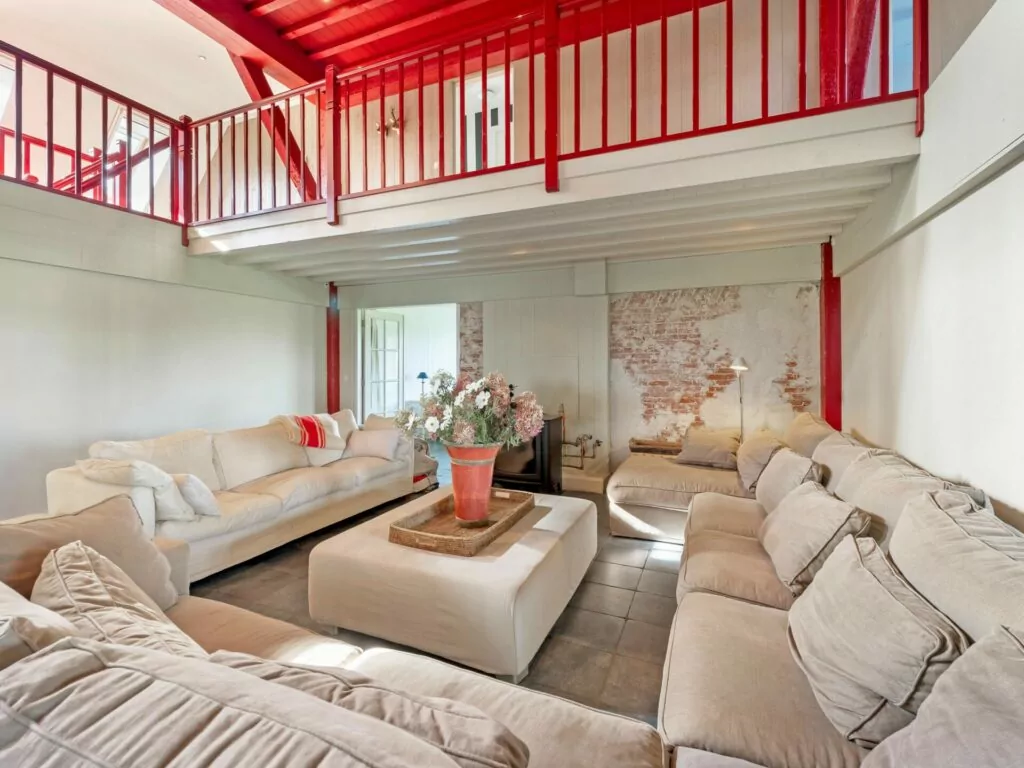
The farm has zero impact on the environment, because of the solar panels that generate electricity, everything in the house being electric, including cooking. Arie explains: “The central heating is wood-fired, using the wood from our own yard where we also plant new trees. Heating the water is done via phase shifters. A 10-kilogram block of salt that solidifies from a liquid to a solid when there is a demand for hot water. This is done by stopping the ions that are moving with an electric signal. This whole process gives enough energy to bring 280 litres of water to a temperature of 70 degrees. Just plug it in, it is a simple concept but oh so effective and it requires absolutely no maintenance.”
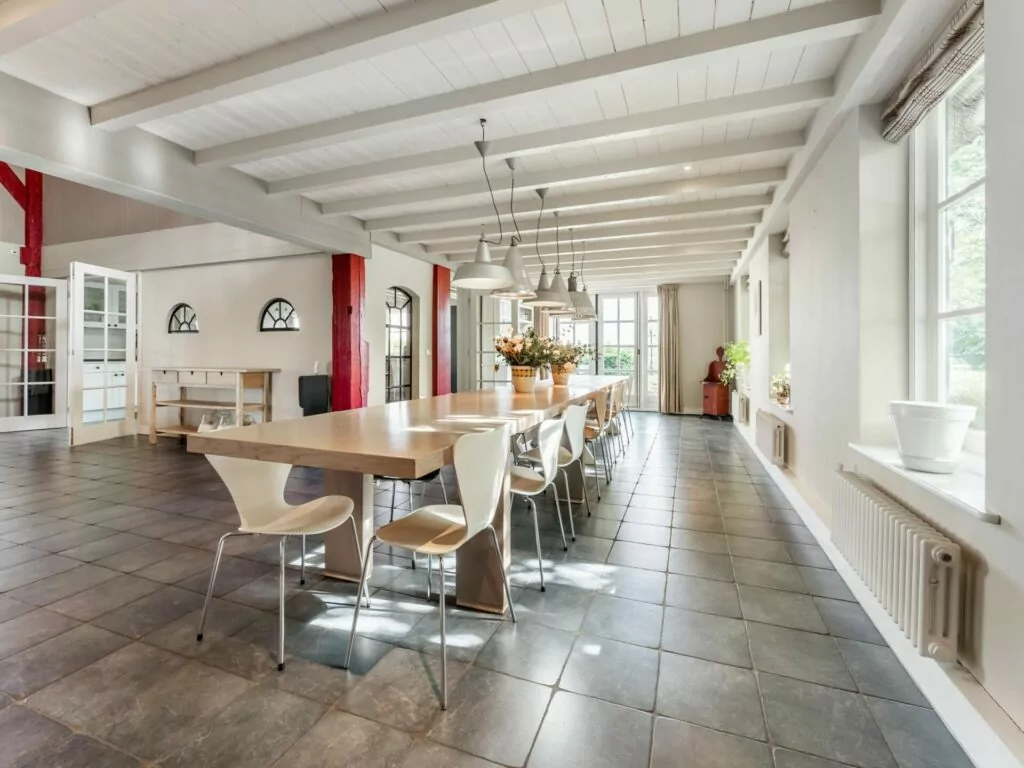
Tips for other homeowners to make their holiday homes more sustainable always start with insulation and solar panels. You can never have enough solar panels to supply the holiday home with power for all the electrical appliances. Insulation keeps the heat in and the cold out. An induction cooker is also very environmentally friendly and a great invention that cooks on an electromagnet. If it does get too hot in the farmhouse during the summer, the house is built in such a way that simply opening a few windows in the attic and downstairs will quickly cool things down. This blow-through effect was used in the past to dry the hay more quickly.
As a guest, it is also important to behave responsibly. The holiday home is sustainable, but the guest who stays in it can also act sustainably during their stay. Waste must be separated, it is important not to dump everything together. Also accepting that it does not have to be 21 degrees all the time is a step in the right direction for a more sustainable future.
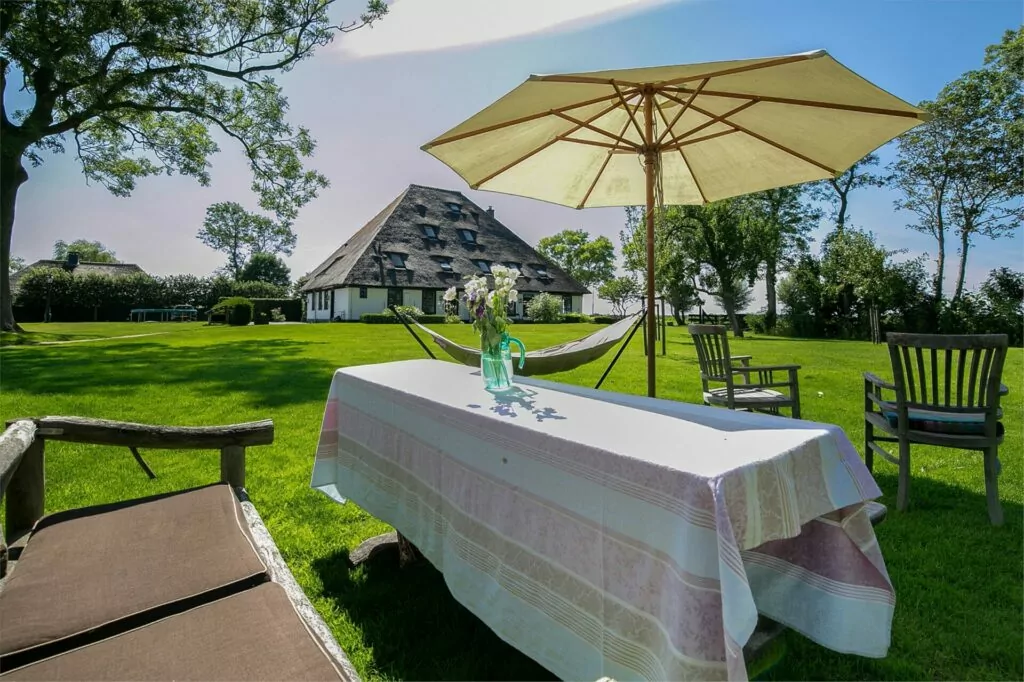
“When I was a student there was talk of sustainable tourism but if you do it this way, with a carbon footprint of zero then you get very close to really sustainable tourism.”
Many people who stay in this farmhouse go sightseeing. The surroundings of Noord-Holland can easily be explored by bike. You are close to the North Sea beach here and on the other side you find the Markermeer. What a Dutchman takes for granted but is highly appreciated by foreigners are the many bicycle paths and bicycle routes. It is easy to cycle to the beach and through the natural dunes, and the city of Alkmaar, with its famous cheese market, is also nearby. During springtime the flower fields in this area are not to be missed.
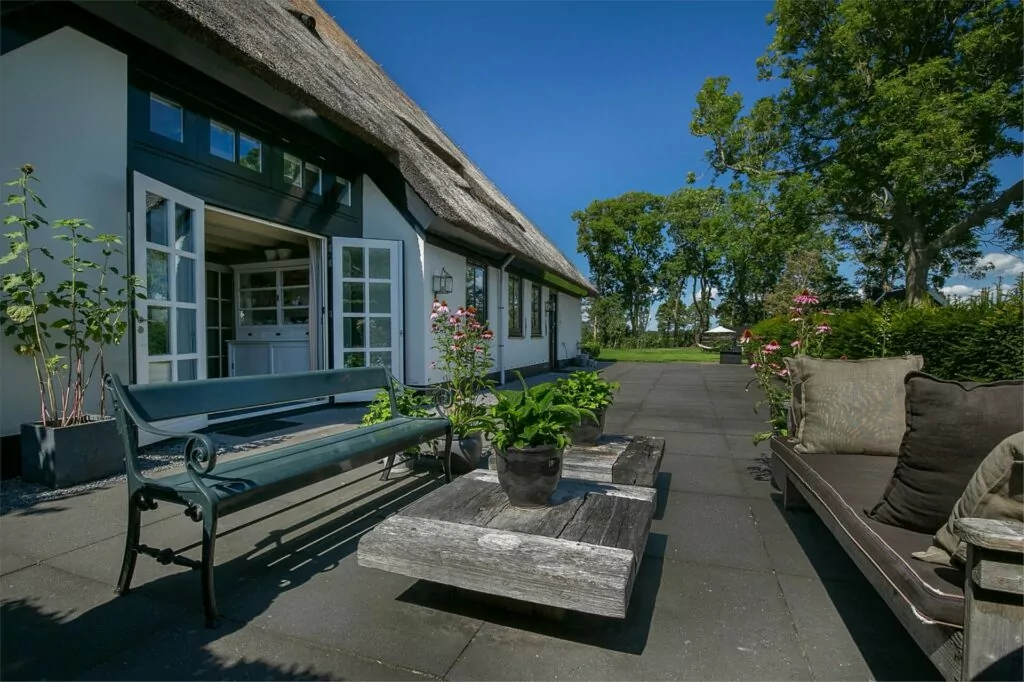
The house is equipped with super fast WiiI because there is now fiber optic cable in the outskirts of Noord-Holland. This is very important because nowadays everyone brings phones and tablets when going on a holiday. Another hobby of the owner, which can partly be admired in the house, is collecting and selling all kinds of crockery. Mariëlle is a chip off the old block as her mother owns a brocante shop in Alkmaar.

